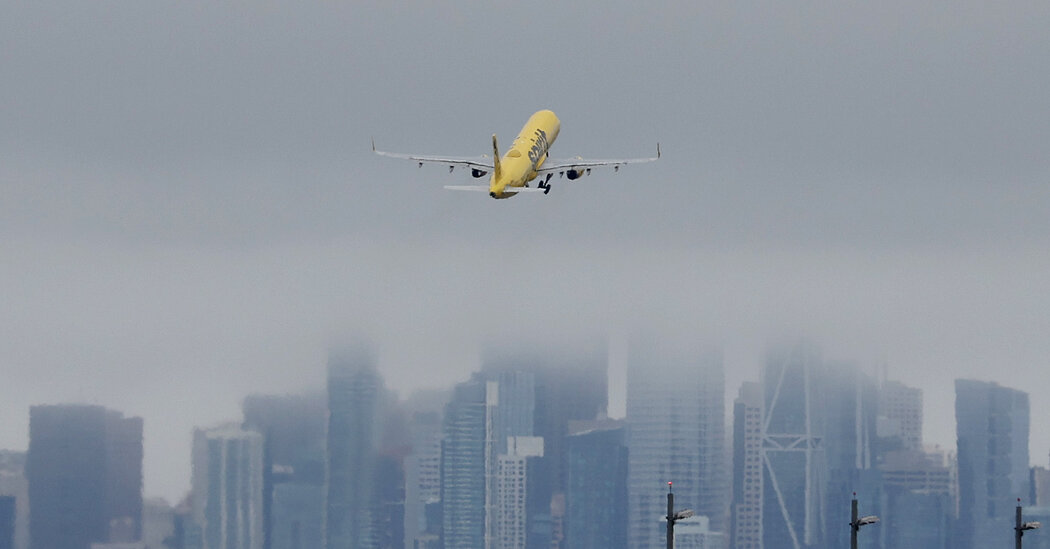Spirit Airlines, once a fast-growing low-cost carrier, is struggling to convince investors that it has a clear path forward after an antitrust ruling blocked the sale of the company to JetBlue Airways.
A federal judge in Boston blocked the proposed merger on Tuesday, concurring with the Justice Department that the deal would hurt consumers by reducing their choices and raising fares. The airlines, which could appeal, say they are considering their options.
Before it struck a deal with JetBlue in July 2022, Spirit was struggling. Unlike larger airlines, it never fully recovered from the early days of the pandemic in 2020. The budget airline is losing money, and some analysts say it is hard to see how Spirit can dig itself out of its financial hole with the exception of finding another buyer. Some airline experts say the carrier might have to file for bankruptcy protection.
“It’s a challenging financial picture for the company,” said Xavier Smith, director of energy and industrials research at AlphaSense.
In the days since the ruling, Spirit’s stock has lost more than half its value. In a regulatory filing Friday morning, Spirit said that it would seek to refinance a large chunk of its debt that comes due in September 2025. It said the merger agreement with JetBlue “remains in full force and effect,” though neither company has confirmed plans to appeal the decision. That was a welcomed sign for investors, who sent the company’s stock nudging higher Friday morning.
On Thursday, the shares plunged sharply after The Wall Street Journal reported that Spirit was exploring restructuring options. Asked about that report, the company said it was “not pursuing nor involved in a statutory restructuring.”
Spirit, like other airlines, took out loads of debt during the pandemic, but it has not had the financial rebound that bigger carriers have seen. It now owes about $6.6 billion, up from $3.6 billion in 2019.
This month, the company sold and leased back 25 jets, which allowed it to reduce its debt by $465 million.
“Spirit has been taking, and will continue to take, prudent steps to ensure the strength of its balance sheet and ongoing operations,” the company said in a statement on Thursday.
Unlike larger carriers like Delta Air Lines and United Airlines, Spirit flies mostly within the United States; its few international routes are relatively short. As a result, it has not managed the strong profits that many bigger airlines have been making on flights…
Click Here to Read the Full Original Article at NYT > Travel…
